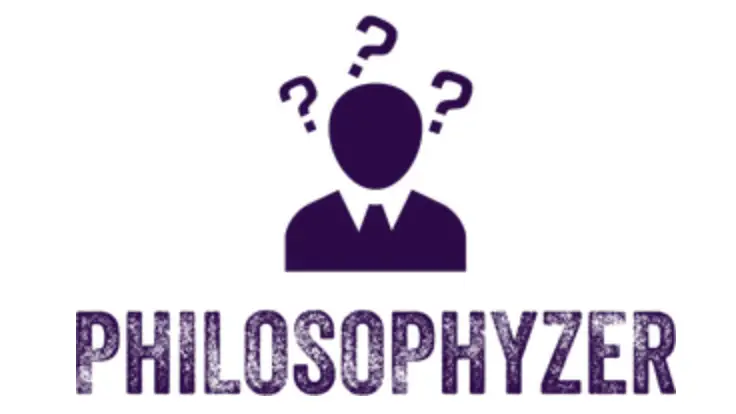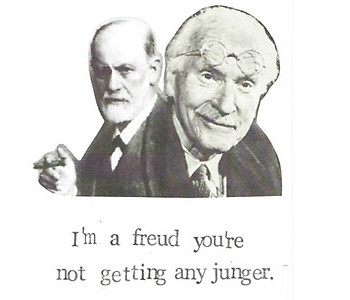Today, I will be comparing two famous Psychologists on their views of religion – I hope that you enjoy my comparison of Freud and Jung.
1: For Freud religion was an obsessional neurosis. People need to be ‘cured’ of religion- He believed that psychology would eventually succeed in explaining religion away in much the same way as a neurosis can be dispelled and the patient cured.
By sharp contrast, Jung assumed that religion is an essential activity of human beings. The absence of religion was the chief cause of adult psychological disorders. Psychology, instead of seeking to explaln religion away, must attempt to explain how man’s nature reacts to situations normally described as religious. The human psyche is ‘natively religious’ (‘Naturaliter Religiosa’).
2: Freud said that instincts are mainly sexual in nature. Jung interpreted instincts in a more general way as the source of psychical energy, so that human behaviour is the result of a collusion between psychical energy and spirit. Because of this, Jung was accused of being ‘mystical’ and ‘unscientific’.
But, Jung replied by saying that it would be,’unscientific’ to overlook the fact that the mystical idea ‘is enforced by the natural tendencies of the unconscious mind.’ (Psychology and Religion) . Jung criticized Freud’s concept of the Super-ego, saying that it was nothing more than a furtive attempt ‘to smuggle in his time-honoured image of Jehovah in the dress of a psychological theory.’ (Freud and Psycho-analysis).
3: This point picks up the last one. For Jung libidinal energy is that which moves to fulfilment, to some reorientation of purpose, not as with Freud, regressively or incestuously as in the Oedipus Complex. Freud was a ‘mechanist’ (methodically uses past to explain what is happening now) who looked into the person’s past for the realist of any situation. By contrast, Jung was a ‘vitalist’ (looking forward to future goals) who looked towards the goal or future purpose of present behaviour. The ultimate goal, in Jungian terms, was lndividuation or wholeness of personality.
4: Freud recognised only the personal unconscious whereas Jung spoke of the collective unconscious also. Because of this, Jung was able to draw upon a vast range of mythological and religious symbolism across the world. Jung appeared to know a great deal more about religion on a world scale than Freud.
5: This point leads on from point 4 on the subject of symbolism. For Freud, phantasies and symbols were the means whereby the individual seeks to avoid ‘reality’. By contrast, Carl Gustav Jung saw these as ‘symbols of transformation.’ Through symbols we gain knowledge of realities which are in themselves unknowable – realities which cannot be comprehended except through symbols – Symbols and myths name the deep patternings in the unconscious, the archetypes.
6: In the ‘Face to Face’ BBC television interview with John Freeman, Jung commented that once Freud had decided on something that was that. Jung himself said that he was always doubting whether his own conclusions were correct. In his Memories, Dreams, Reflections, Jung describes how he lost respect for Freud when he later said that the sexual explanation of behaviour must be defended at all costs – like a ‘dogma’.
In this sense, Freud was more a child of his age than Jung. Freud seem to blindly and dogmatically accept the – now highly questionable – evolutionary view of historical development in which the sequence of magic-religion-science is seen as an unstoppable master-trend. Religion replaced magic in a similar way in which science has replaced religion.
Jung wrote in his memoir that the only events in his life which were worth telling were those when ‘the imperishable world erupted into this transitory one.’ This is the timeless, eternal numinosum, the great secret which Jung believed to be so vital to discover: ‘A man who has never experienced that has missed something important.’ (Memories, Dreams, Reflections, p.389) For Freud, of course, all this would be phantasy, mysticism and a desire to reenter the amniotic fluid of mother’s womb.
Can you think of any further comparison of Freud and Jung? Whose psychology of Religion do you prefer?


> Jung assumed that religion is an essential activity of human beings.
I spent three years looking at just what was religion and along the way had accumulated about 250 definitions. In looking at all of them and trying to figure out what was the common element, I came up with my own definition: your religion is your value construct of reality: what is good, what is bad, how good is one good compared to another, etc.. You need that value construct in order to function because not everything has the same value or meaning in life–this explains why it is essential, as Jung noted . So, everyone of every organized religion, every agnotistic, every atheist has a religion. Most don’t even know it.
Yes, I completely agree, David. It all depends on how you define religion. And whether we say we are religious believers or not, everyone has some value construct. In this sense, I think that we agree we can see Jung in a positive light. He was certainly more optimistic about religion that Freud!
I agree. OTOH, then we have the extreme elements who cause problems!
In the photo symbolicaly Freud is on the left and Jung the right ; separated by whom?
I love this line:
“Religion replaced magic in a similar way in which science has replaced religion.”